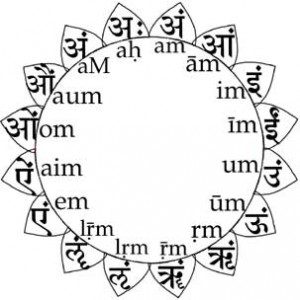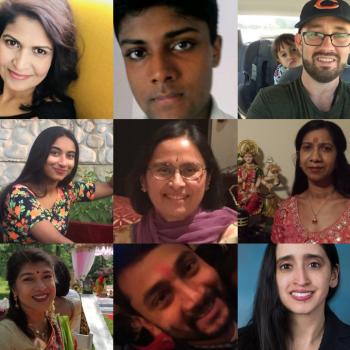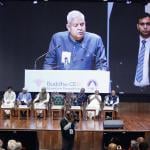There are a few guidelines that will help you to almost always pronounce Hindu words correctly.
*Emphasize the third to last syllable of a word. In many words that’s going to be the first syllable, so default to the first if you’re put on the spot to pronounce something. If you have a chance to look at the word, count the syllables back from the end to emphasize the third to last. Here are some examples:
SADhana, not SadHANA. raMAyana, not RamaYAna. ARjuna, not ArJUNa.
*When you see an “a” it is pronounced “Ah.” There are short “ah”s and long “ah”s but there is no sound in Sanskrit for the “eh” sort of sound such as in “family.”
Ironically, most native English speakers pronounce the word “Sanskrit” with exactly that sound which doesn’t exist in the language. It’s “S-ah-nskrit.” Fair warning, if you say it correctly you may sound pretentious!
* “th” in Sanskrit and Hindi is not pronounced like it is in English. It’s not “th” as in “this” or “the.” It is an aspirated T.
In Sanskrit there are aspirated and unaspirated sounds (meaning with air or without air). In English we don’t have that distinction and it can be a tough one for native English speakers to hear. Most of English words are pronounced with aspiration. Think of “th” in a word as actually being “t-ha.” T but with a “ha” attached. But as one syllable. It’s a “breath of air.” This is why in Indian accents you might hear English words like “Tank you” instead of “Thank you” or “tink” instead of “think.” When you hear that, the person is actually pronouncing a “th” (an aspirated T) but native English-speakers ears are not attuned to pick it up!
*Even if Shiva’s name is spelled Siva, it’s still pronounced “Shiva.” (Or, more accurately Sheeva/Sheewa). Though the boy’s name “Shiv” is usually with a short “e” as in pronounced exactly as it looks in English.
*Some people pronounce the “V” sound as a “W” or a cross between a “V” and “W.”
Here is a very detailed guide on Sanskrit pronounciation: http://www.learnsanskrit.org/sounds/consonants/voice
What about super long names?
One thing that many people find intimidating is long Indian names.
To me the trick is to break it down into familiar parts. Look for parts of the name that are words you’ve seen or heard before or even familiar syllables and groupings of letters.
For example, on my other blog, we are reading along with How To Become a Hindu by Satguru Sivaya Subramuniyaswami. How would you pronounce Subramuniyaswami? Look at it like this: Subra-muniya-swami.
Ramakrishna is Rama and Krishna
Balasubramanyam = Bala-subra-manyam
Vishveshwaraiah = Vish-vesh-warai-ah
Doesn’t always work, but it has helped me out in a lot of situations!
Some of these tips were given to me by my mother, who has been a Sanskrit scholar for nearly forty years. (Mom, if you’re reading, feel free to chime in with more!)

Today on the Premium blog, discussion of verses 8-11 of the Gita.















